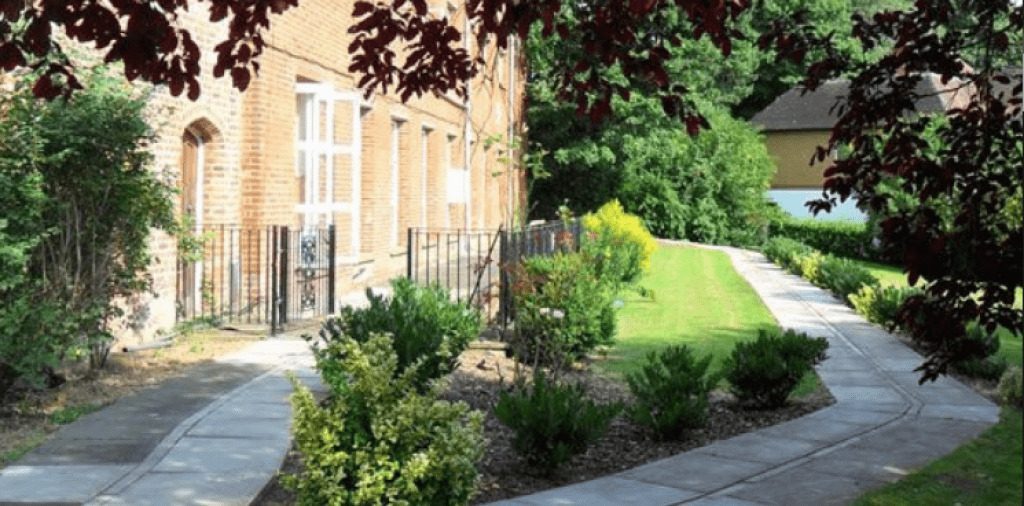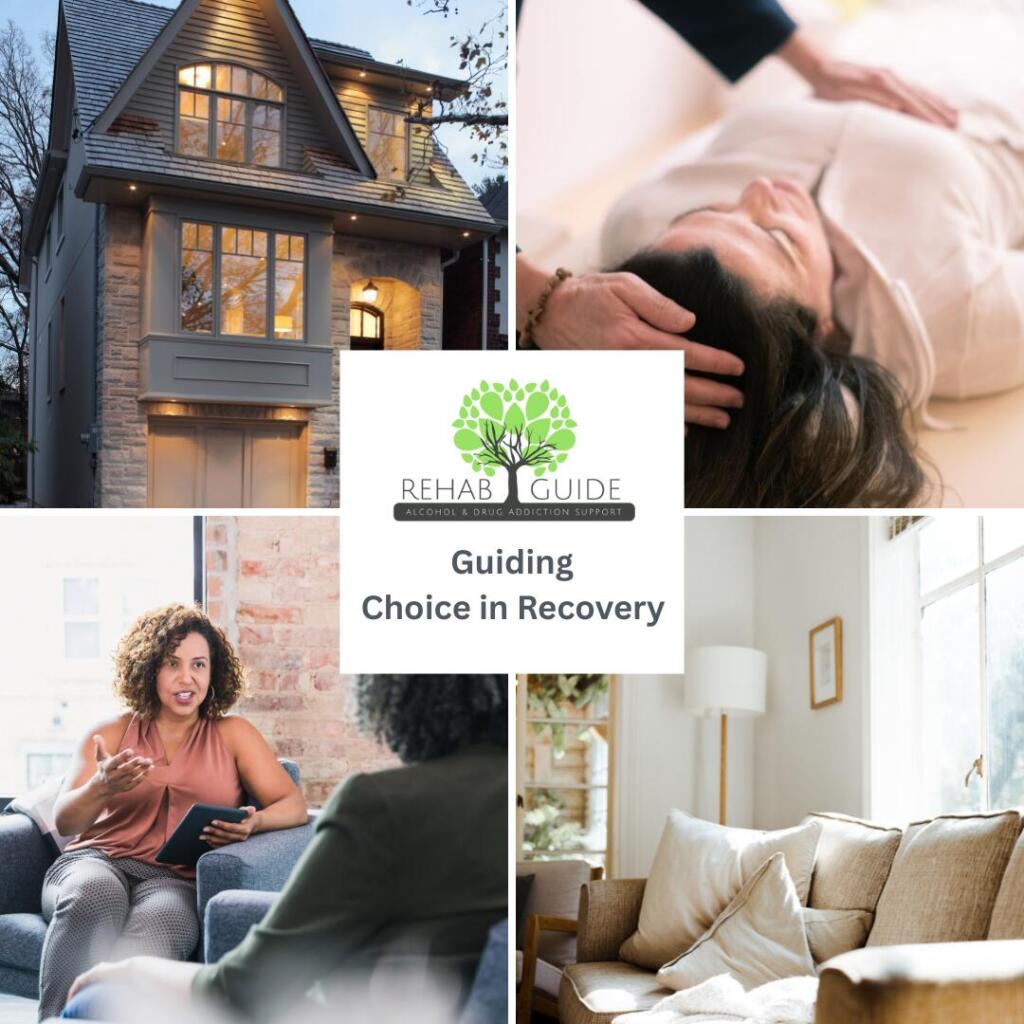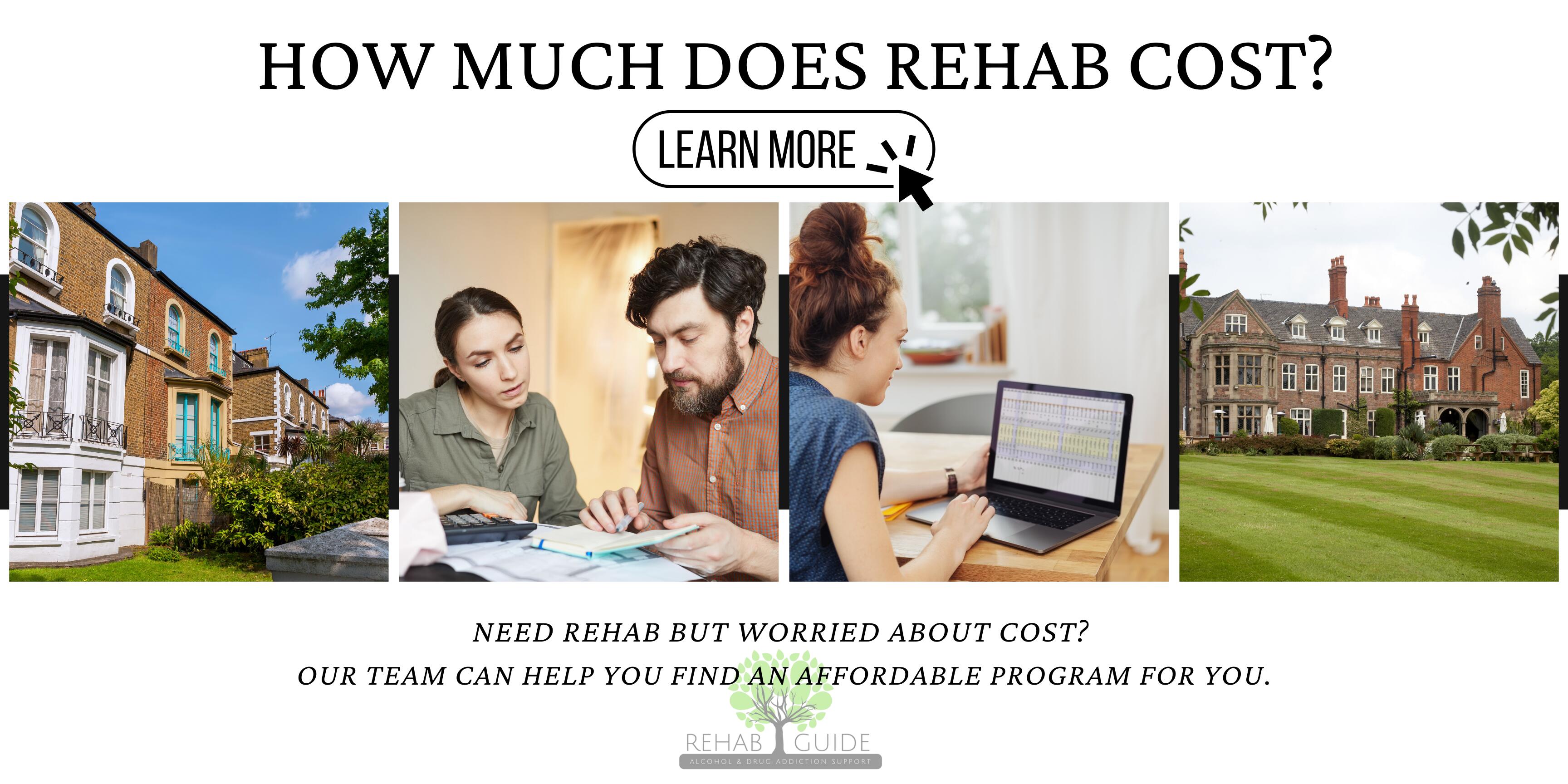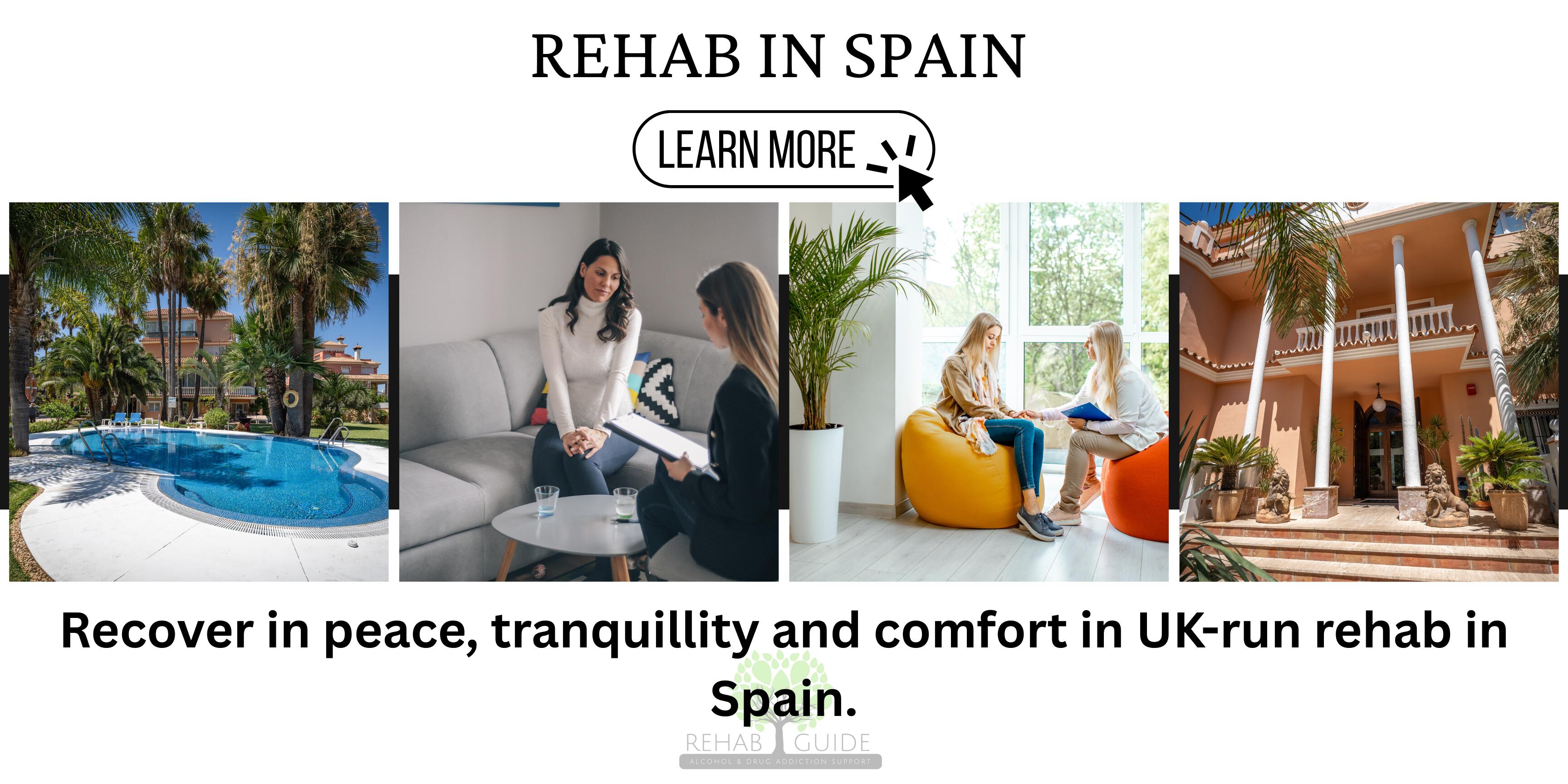Finding a rehab near you
Need help finding a rehab near you that offers the treatment and accommodation that is right for you? Rehab Guide can help. Choosing the right rehab centre can feel overwhelming, especially if you’ve started searching phrases like “rehab near me” or “alcohol rehab near me” and been flooded with options. But this decision is too important to rush. The best rehabilitation centres go beyond surface-level promises and offer real support tailored to your needs.
In this guide, we’ll help you understand what to look for in a centre, from location and treatment approach to aftercare and cost, so you can move forward with the peace of mind that you’re making the right choice.
Key aspects to consider when choosing a rehab centre
Choosing a rehab centre isn’t just about picking the first one that shows up in search results. It’s about finding a place that feels right for you or someone you care about.
That means taking a closer look at the details that actually affect day-to-day life in recovery. If you need expert support, the Rehab Guide team is here to help you.
Below are some key aspects to keep in mind while you’re deciding.

Location
Many residential addiction rehab centres in the UK are carefully placed in quieter parts of the country, often tucked away in the heart of the countryside or near woodland, coastal paths or open green space. Of course, this isn’t by accident. Recovery is a vulnerable time, and the environment you’re in can either support that process or work against it.
When the goal is to step back from everyday stress and focus on healing, being surrounded by nature offers something that urban noise and concrete simply can’t.

You’re more likely to find centres based on the outskirts of towns, in converted period buildings or purpose-built retreats, rather than anywhere near busy dual carriageways or motorways. That sense of physical distance from chaotic roads or commuter routes helps quiet the mind, allowing space for stillness and reflection. There’s a marked difference between hearing birdsong in the morning versus the relentless sound of traffic or sirens outside your window.
Nature plays a quiet but powerful role in recovery. Whether it’s walking through a nearby field after a therapy session or simply being able to sit outdoors with a cup of tea and breathe deeply, these small moments help anchor the day. The surroundings may not seem like the most important detail at first, but over time, they begin to shape how you feel, how you rest and how open you are to the work ahead.
Speciality
Rehab centres can differ quite a lot in what they offer and who they’re best suited for. While the term ‘rehab near me’ might bring to mind one type of treatment, the reality is that centres often focus on different issues, use different methods and attract people with very different experiences. Understanding these differences can help you or a loved one find a place that feels more aligned with what you’re actually facing.
Below are some examples of the types of rehab centres out there and who they may be most appropriate for:
- Substance addiction rehab centres
These residential addiction rehab centres focus on helping people recover from addictions to drugs or alcohol. They’re often structured around detox support, followed by therapy to address the root causes of substance use. This type of centre may suit someone who has developed a physical or psychological dependency and is looking for a full reset in a structured, supportive space.
- Centres for behavioural addictions
Not all addictions involve substances. Some people struggle with behaviours that become compulsive and disruptive, such as gambling, binge eating or sex and pornography addiction. Rehab centres with a focus on process addictions offer tailored therapy to help individuals rebuild their relationship with impulse and emotional regulation. Someone who doesn’t drink or use drugs but still feels stuck in a damaging pattern might benefit most from this type of centre.
- Dual diagnosis rehab centres
When addiction is tangled up with mental health conditions like depression, anxiety, bipolar disorder or PTSD, a dual diagnosis centre is often the most appropriate option. These centres are staffed and structured to treat both issues together, rather than separately. They may be right for someone who feels their mental health has contributed to their addiction (or vice versa) and wants a more integrated approach to treatment.
If you’re unsure what category feels most relevant, it’s okay to ask questions. A good rehab centre won’t pressure you. Instead, they’ll help you determine whether they’re the right fit for you or not.

Treatment approach
Different rehab centres take different approaches to treatment. Some follow the 12-step model, which has been used for decades in addiction recovery and is often familiar to those who have tried peer support groups.
Others take a more therapeutic route, with evidence-based methods such as cognitive behavioural therapy (CBT), dialectical behaviour therapy (DBT) and trauma-informed care.
Many now also incorporate holistic elements like mindfulness, yoga, sound therapy or art therapy.
There’s no single “right” approach, and what matters the most about these therapies is whether the centre’s philosophy aligns with your needs and values. If possible, speak to someone on the team to get a better feel for how their programme works in practice.
Accommodation and setting
Of course, if you’re going to be spending a lot of time in one place, you want to make sure your accommodation is fit for your personal needs. Some people find that a calming, hotel-like environment helps them relax and focus on healing. Others are happy with simpler surroundings as long as they feel safe and supported.
Consider what matters to you. Would you prefer a private room or are you comfortable sharing? Is outdoor space important? What does the daily routine look like, and does the environment help or hinder your recovery mindset?
Location matters too. Priorities vary; some people prefer to stay close to home and avoid too much travel, and others find distance is what they need to escape addiction. There are many quiet rural rehab centres around the UK but you can also choose a larger city such as London or a bustling seaside town like Blackpool. The most important thing is that you are happy, comfortable and not exposed to anything that might trigger your addiction.
Cost and what’s included
Cost is often one of the biggest deciding factors, and understandably so. Rehab programmes can range from free NHS-based options (though waiting lists can be long) to high-end private centres that offer an all-inclusive experience.
But not all private centres are priced the same, and what’s included can vary.
Some offer detox, therapy, accommodation, meals and aftercare as part of the package. Others may charge separately for additional therapies or follow-up support.
Make sure to ask for a breakdown of what’s included in the cost and whether there are any extra fees. Transparency around pricing is a good sign that a centre values trust and openness, which are qualities you’ll want in your recovery journey too.
Do I have to choose a rehab centre within the UK?
The short answer is no. You don’t have to stay in the UK to access effective rehab. While many people feel more secure staying close to home, others find that stepping away from their everyday environment is what finally allows them to reset.
Choosing a centre in England, Scotland or Wales can offer familiarity. You know the culture, travel is simpler and loved ones are nearby if you want their support.
But for those who feel stuck in old routines or triggered by their surroundings, distance can make a real difference. Being somewhere completely new can help create the mental space needed to let go of old patterns.
That’s part of why rehab abroad has grown in popularity. Locations like Spain, South Africa, Cyprus and the Canary Islands often lean into natural surroundings and a more restorative pace, which can feel grounding in the early days of recovery.
If you’re considering rehab abroad, it’s worth exploring practical details like aftercare support and travel plans, but the right setting can have a real impact. For example, some centres offer remote aftercare to stay in touch once your stay ends, while others can help link you to local services. It’s worth asking those questions early so you’re clear on what the full journey looks like.
In the end, what matters most is finding somewhere that gives you the best chance to focus on yourself. For some, that’s a quiet corner of the UK. For others, it’s a complete change of scenery.
What are the next steps?
In the last section, we broke down some of the most important aspects to consider when choosing the right rehab centre for you. But we understand that it’s a lot of information to take in. Some aspects may have jumped out at you straight away, while others might have taken a mental back seat.
That’s completely normal. Your priorities might shift the more you reflect on your situation or learn about what different centres offer. That’s why we’ve put together a simple checklist to help you make sense of it all.
When you start reaching out to our team, this list can help you feel more prepared and confident. Even if you’re still early in the decision-making process, these questions can guide your thinking and help you figure out what really matters to you.
Download Free PDF – Rehab Checklist Here
Rehab checklist: Questions to ask before you choose
Location
- Is the centre in a calm, natural setting that feels peaceful and away from distractions?
- Will I feel more supported by being close to home, or would I benefit from distance and privacy?
Staying in the UK vs going abroad
- Am I open to attending rehab outside the UK if it means a fresh start?
- What kind of aftercare is offered if I choose an overseas centre?
- Do I feel more at ease in familiar surroundings or is a change of environment what I need?
Speciality
- Does the centre have experience treating the type of addiction or issue I’m facing?
- If mental health is also part of the picture, do they support dual diagnosis?
- Will I be with people who understand what I’m going through?
Treatment approach
- What types of therapy are included in the programme?
- Do they use approaches I’m comfortable with (CBT, DBT, holistic methods, trauma support)?
- How structured or flexible is the treatment plan?
Accommodation and setting
- What is the day-to-day environment like?
- Will I feel safe and comfortable in the space?
- Are rooms private or shared, and what kind of facilities are available?
Cost and what’s included
- What exactly does the quoted price include?
- Are there extra costs for specific therapies, one-to-one sessions or aftercare?
- Are there payment plans or funding options available?
Feeling overwhelmed? Here’s how Rehab Guide can help you
When you’re trying to make sense of everything, it’s easy to feel overwhelmed. The decisions ahead can feel heavy, especially when you’re not sure where to begin. That’s where we come in.
At Rehab Guide, we’re not here to push you toward a specific centre or pressure you into a quick decision. We’re here to listen. Really listen. When you reach out, we’ll take the time to understand your situation and help you explore what kind of support might actually make a difference right now.
No two people arrive at this point in the same way. Some are facing years of addiction. Others are starting to worry about the early signs. Some feel ready. Others feel scared, hesitant or unsure. Wherever you’re at, we’ll meet you there and walk with you at your pace.
Once we understand your story, we’ll use our knowledge and experience, along with our network of trusted clinics across the UK and abroad, to guide you through the next steps. We won’t overwhelm you with options. Instead, we’ll talk you through each one, explain what to expect and help you figure out what feels like the right fit.
This is your journey and we’re here to help you make informed decisions. Contact Rehab Guide today to begin your path to recovery.
FAQs
1. How do I find the best rehab near me?
Search for rehab near me and compare reviews, treatments offered, staff qualifications and success stories to find the best fit for you.
2. Are there alcohol rehab centres near me that offer residential programmes?
Yes, many alcohol rehab near me searches will lead to residential addiction rehab centres offering 24/7 support, detox services and personalised therapy options.
3. What’s the difference between rehabilitation centres near me and a rehabilitation hospital?
Rehabilitation centres near me focus on addiction recovery, while a rehabilitation hospital often treats physical injuries or post-surgical recovery in a clinical setting.
4. Can I attend drug rehabilitation near me even if I have a job or family?
Yes, many drug rehab near me programmes offer flexible or outpatient options so you can continue your responsibilities while receiving effective drug rehabilitation near me.

Fiona Kennedy is an editor and content manager who earned her Master of Arts degree from the University of Edinburgh, followed by completing the CELTA Cambridge teaching course in English. She has worked as an editor, writer and personal coach. Coming from a family deeply involved in the rehabilitation and support of those suffering from addiction, she is passionate about helping people to understand and take control of their dependences. Fiona’s other passions include travelling and taking part in community projects.




